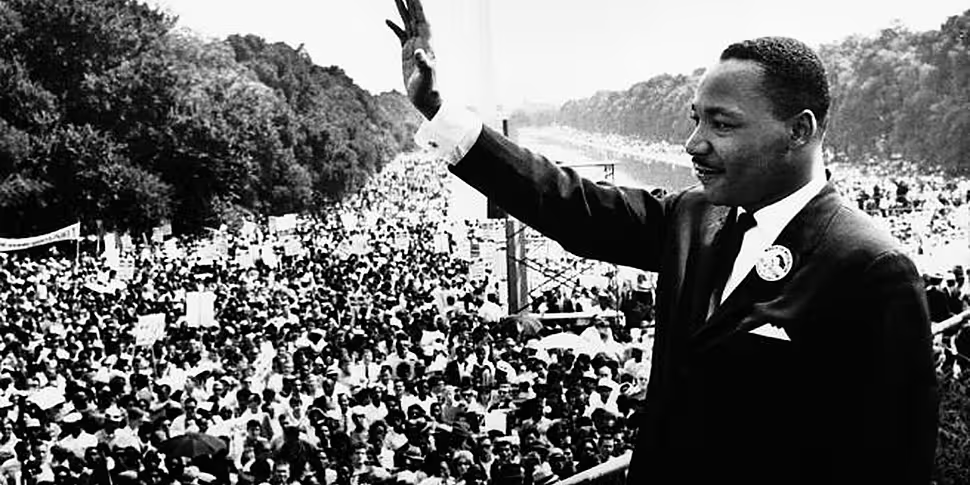That Wednesday, King faced a crowd somewhere in the vicinity of a quarter of a million people, most fresh off a march through the U.S. capital.
Although the rally was attended by people of all creeds and backgrounds, it’s estimated a good three-quarters or more of the crowd were black - the people who had been subject to centuries of slavery and inequality in America.
The 1500-odd words that followed were destined to be some of the most influential and eloquent ever spoken, with only a handful of orations from the likes of Abe Lincoln and Winston Churchill managing to achieve the same timelessness.
With King’s speech, almost every sentence was spine tingling, but it was four words particularly that shook the world - “I have a dream”. With that simple statement, he managed to encapsulate an entire struggle for freedom and equality. “A dream deeply rooted in the American dream”.”A dream that one day this nation will rise up and live out the true meaning of its creed”. A dream to end the irrational hatred that had long divided his country.
A great legacy
Martin Luther King Jr’s words came after his major work in some of the most important American civil rights battles: from leading the Montgomery Bus Boycott to his significant role in the protests against racial segregation in Birmingham, Alabama. He was arrested almost thirty times, but never backed down.
He would continue to fight – non-violently - until his death in 1968. It was I Have a Dream that definitively secured his place in the history books, but his legacy would have been inimitable even without it. Some persistent rumours even suggest he wouldn’t have even taken to those steps if it wasn’t for his wife’s encouragement that it was a good speech.
Today, though, is as good an opportunity as any to have a look at that hypnotic speech in its entirety - how lucky we are that television cameras captured it all, even if copyright restrictions mean full recordings of the speech are hard to come by. It makes for a devastating reflection on America’s history (constantly alluding to Lincoln’s actions a century earlier) and a rousing plea for a brighter future. Most importantly, King and his fellow civil right movement leaders took “to this hallowed spot to remind America of the fierce urgency of now”. The I Have a Dream speech was, above all, a call to action.
Progress?
King lived to see his dreams of the Civil Rights Act and the Voting Rights Act, passed in 1964 and 1965 respectively. Tragically, his assassination in 1968 meant he never saw the further progress made in the following years and decades, alongside no shortage of setbacks. However, thanks to his lifetime of fighting for civil liberties and basic rights for everyone, his influence is still felt.
With one speech particularly, his words continue to inspire and will continue to do so for decades if not centuries to come. Even though some of King’s dreams have been achieved - to what degree continues to be a matter of debate - his words continue to resonate in a world still full of injustice and inequality.
ABC has put together this insightful analysis of the most iconic of modern speeches. You can watch it here.









